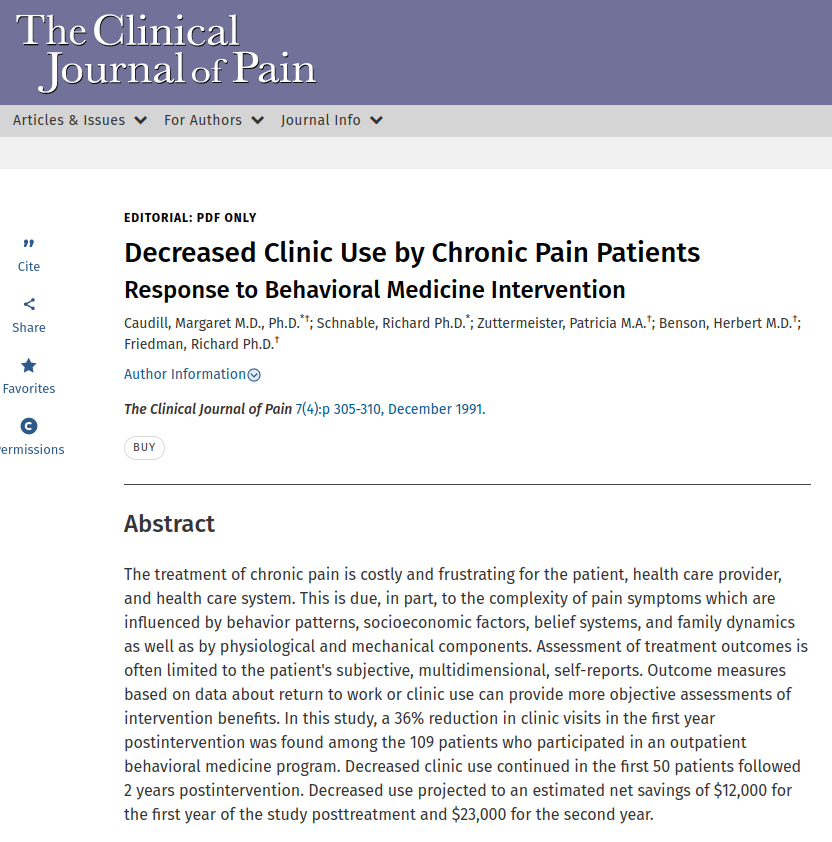The treatment of chronic pain is costly and frustrating for the patient, health care provider, and health care system. This is due, in part, to the complexity of pain symptoms which are influenced by behavior patterns, socioeconomic factors, belief systems, and family dynamics as well as by physiological and mechanical components. Assessment of treatment outcomes is often limited to the patient’s subjective, multidimensional, self-reports. Outcome measures based on data about return to work or clinic use can provide more objective assessments of intervention benefits. In this study, a 36% reduction in clinic visits in the first year postintervention was found among the 109 patients who participated in an outpatient behavioral medicine program. Decreased clinic use continued in the first 50 patients followed 2 years postintervention. Decreased use projected to an estimated net savings of $12,000 for the first year of the study posttreatment and $23,000 for the second year.
Decreased Clinic Use by Chronic Pain Patients Response to Behavioral Medicine Intervention
Publication
The Clinical Journal of Pain
7(4): p. 305-310
Abstract
Web and Email Links
Related Listings
Journal
Behavior Research and Therapy
In this study, Herbert Benson's (1975) Relaxation Response Meditation program was tested as a possible treatment for Irritable Bowel Syndrome (IBS). Participants were 16 adults who were matched into pairs based on presence of Axis I disorder, primary IBS symptoms and demographic features and randomized to either a six week meditation condition or a six week wait list symptom monitoring condition. Thirteen participants completed treatment and follow-up. All subjects assigned to the Wai […]
Journal
Neuroreport
Meditation is a conscious mental process that induces a set of integrated physiologic changes termed the relaxation response. Functional magnetic resonance imaging (fMRI) was used to identify and characterize the brain regions that are active during a simple form of meditation. Significant (p<10(-7)) signal increases were observed in the group-averaged data in the dorsolateral prefrontal and parietal cortices, hippocampus/parahippocampus, temporal lobe, pregenual anterior cingulate […]
Journal
Journal of Cardiopulmonary Rehabilitation
We previously reported reduced blood pressure, psychological symptoms, and other cardiac risk factors in hypertensive patients who participated in a nonpharmacologic, outpatient behavioral program. The present study is a 3 to 5 year follow-up of 59 (60%) of the same patients (who served as their own controls) to assess continued efficacy of the program. At entry into the study, patients had hypertension for a median of 6 years. Therefore, it is unlikely that placebo effect could expla […]

